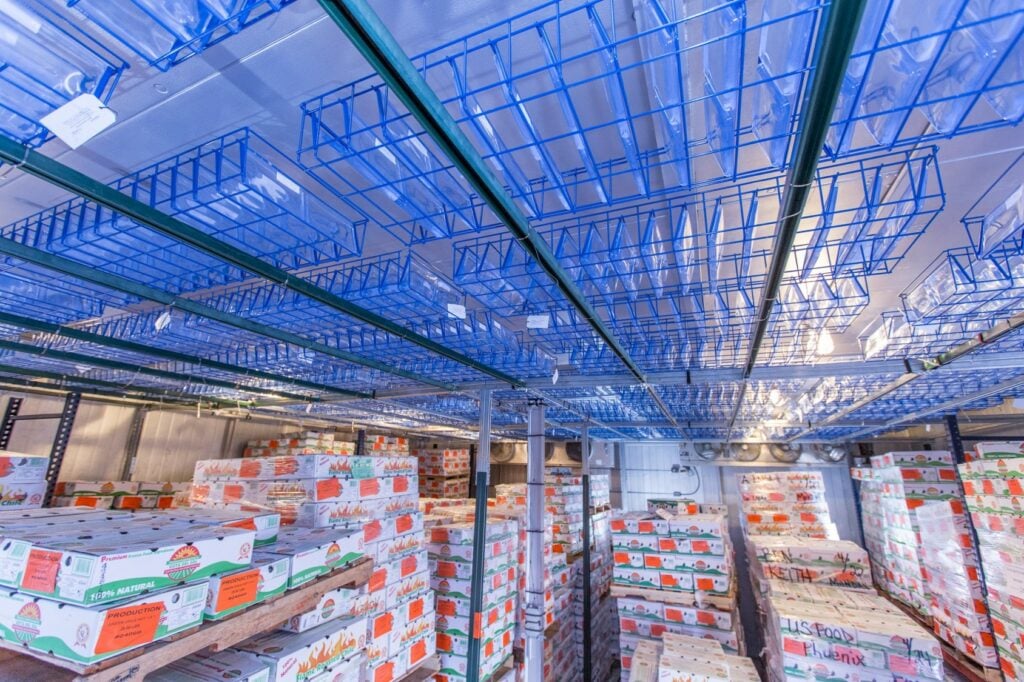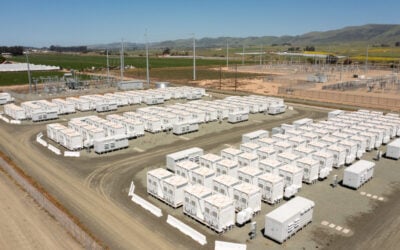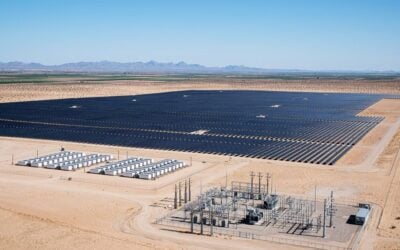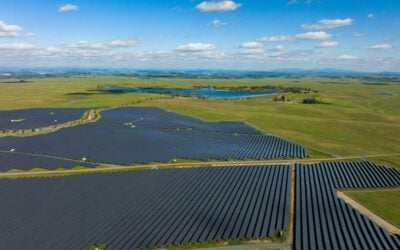
It’s been a positive week for thermal energy storage technology, with utility Edison International validating a cold storage solution, a collaboration between two groups to achieve 100% round trip efficiency, and an acquisition involving several intellectual property rights patents.
Edison validates Viking Cold Solution’s cooling thermal energy storage tech
Viking Cold Solutions has had its thermal energy storage (TES) technology validated after a two-year evaluation study by environmental consulting firm D+R International on behalf of utility Southern California Edison (SCE), part of Edison International.
Enjoy 12 months of exclusive analysis
- Regular insight and analysis of the industry’s biggest developments
- In-depth interviews with the industry’s leading figures
- Annual digital subscription to the PV Tech Power journal
- Discounts on Solar Media’s portfolio of events, in-person and virtual
Its solution, pictured above, stores cold energy with up to 25% more efficiency than conventional cold storage, the company said. The evaluation study recommends adopting Viking Cold Solutions’s TES into SCE’s portfolio of programs to promote greater energy efficiency and demand response in cold storage facilities, the company said.
Viking said the study, carried out at a foodservice distributor in Southern California, validates the commercial benefits of TES to improve grid stability and decrease electricity use. Refrigeration is the third-highest category of energy use in California.
The evaluation study determined that “phase change materials combined with intelligent controls significantly improved energy efficiency and demand management capabilities for cold storage facilities”. Specifically, Viking’s TES technology increased energy efficiency by 25% within the refrigeration system and substantially reduced peak load demand, while better maintaining required product temperatures.
The Houston-based company is hoping this will now kickstart the adoption of its technology by food manufacturers, distributors and food retailers across the US. Adoption into existing incentive programs for operators of temperature-controlled facilities to lower energy use would go a long way towards this, and Viking says the evaluation’s success promotes its TES technology into those programs. You can read the whole evaluation study’s results here.
Israeli-based thermal energy storage group seeks to achieve 100% round-trip efficiency
Meanwhile, Israel-based thermal energy storage cell producer Nostromo Energy (TASE:NOST) has announced a technology collaboration with commercial cooling systems manufacturer Smardt Chiller Group.
The partnership will seek to “introduce an energy storage system with the highest Round Trip Efficiency (RTE) ever,” of 100%, the company said.
In the context of energy storage, round-trip efficiency means the fraction of energy put into storage that can be retrieved.
Nostromo’s core product is its IceBrick, a modular, encapsulated ice cold behind-the-meter energy storage system which enables rapid freezing at high temperature. Its primary use case is to replace building cooling. It cools water into stored ice during off-peak electricity demand periods, and uses it to cool a building’s circulated water at peak hours.
It claims 86-92% thermal round-trip efficiency, 85% full cycle round-trip efficiency, 94% depth of discharge with a four-hour cycle, and less than 1% degradation over a 20 years. Energy-storage.news interviewed its founder and CTO Yaron Ben Nun last year shortly after a stock market listing.
The partnership between the two companies involves the establishment of a lab to develop operating protocols for both companies’ systems to optimise each other’s performance.
Norway-based molten salt battery group expands into Spain
Meanwhile, Norway-based thermal battery producer Kyoto Group AS has acquired Mercury Energy, a company based in Spain holding a number of intellectual property rights (IPRs) related to the development of thermal energy storage. Mercury will be renamed Kyoto Technology Spain.
The announcement provides little additional information about Mercury Energy. It says the seller is Andres Barros Borrero, who also owns international energy consultancy company RPOW Consulting with whom Kyoto Group has an existing relationship related to the development of its Heatcube product.
He will be paid an initial cash consideration and additional compensation upon achieving milestones linked to future commercialisation of Heatcubes in Spain up until 1 January 2026, paid as shares in Kyoto Group AS.
The Heatcube is a molten salt-based battery which can be configured with capacities from 4 MWh to over 100 MWh, and with discharge load up to 25 MW. It started a pilot battery in February 2020 which is now dimensioned for loads up to 1MW.
It claims an energy efficiency with a thermal energy only discharge of 90%, while 65% thermal and 25% electric power can be extracted from the battery in a combined heat and power configuration (CHP).
The company listed on the Euronext stock exchange in March last year.






